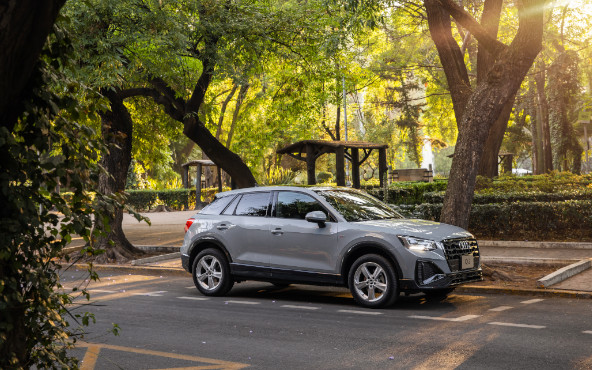Published by Urbano Puebla
Audi's Mexican plant in San José Chiapa will launch new electric models in the global market in 2026.
According to Urbano Puebla, the brand aligns its business success with sustainable activities with environmental, social and governance criteria. This year it is joining forces with Pronatura México A.C. and Comunal to present Audi Go Green, an initiative that invites brand collaborators to reduce their carbon footprint in order to take action in favor of the environment.
It will be from 2026 when Audi will launch only new all-electric models on the global market. The company will phase out the production of internal combustion engines by 2033.
In its projects for the near future, the brand will closely align business success with sustainable activities based on environmental, social and governance criteria, including climate change mitigation and resource protection.
The Audi Go Green initiative seeks to reduce the carbon footprint of the brand's vehicles towards a greener world, through various actions. With this project Audi seeks to take responsibility and action for the environment, doing its bit to reduce the impact of climate change.

As part of the Audi Go campaign, the company developed a calculator that will allow customers to know the carbon emissions of their vehicle and offset them through bonds for forest conservation in Oaxaca, Mexico. In addition, customers will have the opportunity to donate a tree to Pronatura Mexico.
This donation includes the planting of the tree in the central western part of the country, as well as the maintenance and monitoring to guarantee its survival.
Audi is the first automotive brand to develop this technology in our country. Any Audi user will be able to enter the official Audi de México website, where a new tab will appear inviting you to discover how many tons of CO2 equivalent you emit and how to neutralize them.
For this measurement to be possible, the user must share some data on the emissions calculator microsite.
According to World Bank data, the global carbon footprint is almost 46 billion tons of CO2e and 4.5 tons of CO2e per person. In Mexico, it is 3.7 tons CO2e. Mexico is among the first fifteen countries in the world for its contribution of GHG emissions with 737 million tons of CO2e as of 2019 (INECC).
Offsetting is done by purchasing carbon credits or bonds that, through international certification, guarantee that one ton of carbon dioxide equivalent is captured by forests or other technologies. In cases where the entire carbon footprint of a person or company is offset, they are said to be carbon neutral or to have neutralized their emissions for a certain period of time.
Pronatura is one of the most recognized environmental NGOs in Mexico. Its mission is to conserve biodiversity and ensure the resilience of environmental services that contribute to the construction of a just and equitable society in harmony with nature through the application of innovative models of sustainable development and the use of technology for conservation.
Another partner for this important project is Comunal, a Social Impact Agency in Mexico, with more than 4 years of experience working with more than 50 NGOs and national and international brands.
Michel Rojkind, founding partner of Rojkind Arquitectos, a Mexican design and architecture firm recognized by Architectural Record1 in 2005 as one of the top ten firms in avant-garde architecture, also joins the initiative as an ambassador.
Source: Urban Puebla


